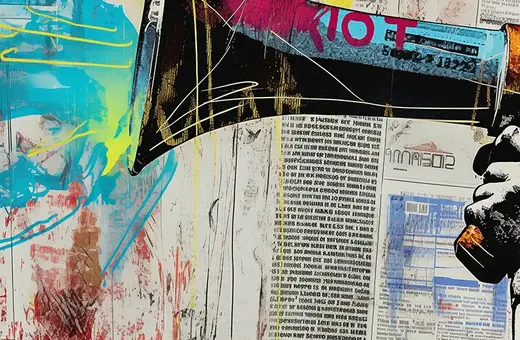Is virtual murder morally wrong? Could we chemically enhance morality? Might prejudice be a force for good?
From burkas to bikinis, love unions to arranged marriages, we recognise that different cultures have different moral codes. Yet faced with ISIS brutality or genital mutilation, there seems a threshold past which we want to express definitive moral outrage.
In a culturally relative world why are we so wedded to moral judgment? Without a divine underpinning, has morality become no more than a means to give authority to prejudice? Or are there universal principles which form the basis of all cultures?
In this issue of IAI News, we investigate the perils of moral conviction. Each of our contributors will be testing the limits of different ethical frameworks to see if morality is, at the end of the day, nothing more than a fig leaf for prejudice.
The Future of Moral Enhancement
Julian Savulescu & Sylvia Terbeck – Director of the Oxford Centre for Neuroethics & Lecturer in Psychology at Plymouth University
We think reason is the way to defeat prejudice. But new research suggests it might be bio-enhancement, not rational argument, that holds the answer. Leading the issue, Savulescu and Persson make the case for chemically enhancing morality.
The Gamer’s Dilemma: Is Virtual Murder Morally Wrong?
Garry Young – Senior Lecturer in Psychology
The idea of virtual rape provokes universal disgust. So why are we comfortable with children killing an average of 100,000 people in video games by the age of 18? In this article Young picks apart the ethics of virtual crime.
The Moral Hazards of Money
Adrian Walsh – Philosopher of Economics and author of The Morality of Money
Is money objectively immoral? Are there certain goods we shouldn’t sell? Examining the impact of markets and universal currency, Walsh reveals the surprising dangers lurking in your wallet.
Morality, Neuro-myths, and the Spurious Seduction of Evolutionary Ethics
Steven Rose – Emeritus Professor of Neurobiology
Neuroscience now claims it can pinpoint moral decision-making in the brain. But is this no more than a dangerous myth? Neuroscientist Steven Rose debunks the latest neuro-myths about morality.
Can Prejudice Enhance Morality?
Adam Sandel – Social Scientist at Harvard and author of The Place of Prejudice
Could prejudice actually be a force for good, not antithetical to reason but essential to it? Completing the issue, Sandel investigates the surprising uses of bias in moral decision-making.
Issue 56: Morality and Prejudice
Why are we still so wedded to moral judgment?

18th May 2017
Want to continue reading?
Get unlimited access to insights from the world's leading thinkers.
Browse our subscription plans and subscribe to read more.
Already a subscriber? Log in
Emily Elyard 29 February 2020
There are many online magazines who give the platform to the people that they visit and discuss their big ideas that you need to implement. Those who are providing [url=https://my-assignment.help/]assignment essay help[/url] services they help others to get successful with their ideas.




















Join the conversation